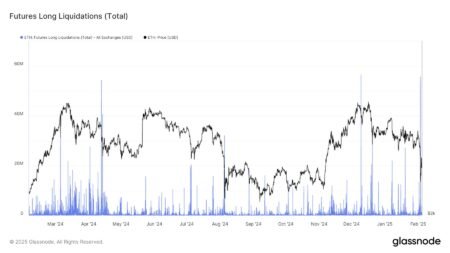The world’s largest cryptocurrency, Bitcoin, experienced a 3% drop in its value on July 16 after $2.8 billion in BTC from Mt. Gox’s rehabilitation program was moved between wallets. This significant movement of funds has caused concern among investors, fearing a potential sell-off by creditors that could flood the market and push prices lower. The cold wallet associated with Mt. Gox sent over 47,000 Bitcoin, valued at almost $3 billion, to another cold wallet, sparking uncertainty within the market.
As news of the massive BTC movement surfaced, investors became jittery about the Mt. Gox repayments that are believed to be worth around $9 billion. The transfer from Mt. Gox’s wallet came after a small test transaction of 0.021 BTC, leading to speculations about the purpose of the movement. While the exact reason remains unclear, the impact was felt in the market as the Bitcoin price swiftly dropped to $62,950 from its recent high of $65,046, marking its highest level in four weeks.
The struggles faced by Bitcoin in recent weeks have been attributed to various factors, including the Mt. Gox refunds and the German government’s selling spree of seized Bitcoin. Mt. Gox, once the largest Bitcoin exchange, collapsed in 2014 after losing hundreds of thousands of BTC in multiple heists. Since then, the Rehabilitation Trustee has been working on repaying creditors in BTC and Bitcoin Cash, with around $9 billion owed to about 127,000 Mt. Gox creditors who have been waiting for reimbursements for over a decade.
The repayment process involves sending funds to designated crypto exchanges, such as Kraken, Bitstamp, SBI, Bitbank, and BitGo, where creditors can withdraw their Bitcoin within 90 days. Despite concerns about the potential impact of Mt. Gox repayments on the market, it is believed that the long-term effects may be less severe as the market gradually absorbs the selling pressure. With the majority of creditors likely looking to lock in profits given the significant growth in Bitcoin’s price over the past decade, the situation remains uncertain but manageable for now.



















